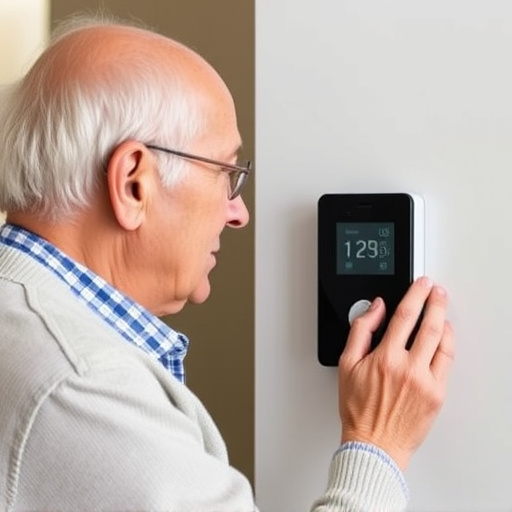In today's digital era, personal alarms designed specifically for the elderly are revolutionizing emergency response and care. These innovative devices offer quick access to assistance through advanced technology like fall detection, GPS tracking, and one-touch alerts. By integrating these alarms with healthcare networks and remote monitoring, seniors can maintain independence while enjoying enhanced safety and peace of mind, without constant supervision. The future includes growing adoption of tailored personal alarm systems and telemedicine for proactive health management, aiming to boost independence and well-being for older adults.
Understanding Elderly Emergency Needs
The Role of Personal Alarms in Elderly Safety
Implementing Effective Emergency Response Systems
Implementing effective emergency response systems is paramount in ensuring timely assistance for the elderly population, who may require immediate help due to falls or medical emergencies. One crucial tool in this regard is the personal alarm for elderly individuals. These devices, often worn as pendants or integrated into daily living aids, allow seniors to discretely signal for assistance when faced with an emergency. The technology behind these alarms has advanced significantly, offering features like automatic fall detection, GPS tracking, and one-touch alerts that connect users directly to emergency services or pre-programmed contacts.
The success of such systems hinges on accessibility and usability. It’s essential that the elderly and their caregivers understand how to operate these devices effectively. Regular training sessions and clear user manuals can ensure that personal alarms are used appropriately, increasing the chances of prompt response during emergencies. Additionally, integrating these systems with existing healthcare and social support networks can create a comprehensive safety net, fostering a sense of security among seniors.
Future Trends in Elderly Emergency Care
The future of elderly emergency response is poised for significant advancements, driven by technological innovations and a growing focus on personalized care. One key trend is the increased adoption of personal alarm systems designed specifically for seniors. These devices, often worn as pendants or integrated into smart home setups, allow individuals to quickly summon help in case of an emergency, ensuring timely assistance without requiring constant surveillance.
With advancements in telemedicine and remote monitoring, future elderly care will also involve more proactive health management. Sensors and wearable technology can continuously track vital signs and detect falls or unusual activity, enabling early intervention and personalized response plans. This shift towards preventive care, coupled with the use of personal alarms, aims to enhance independence while ensuring safety and peace of mind for older adults and their families.
